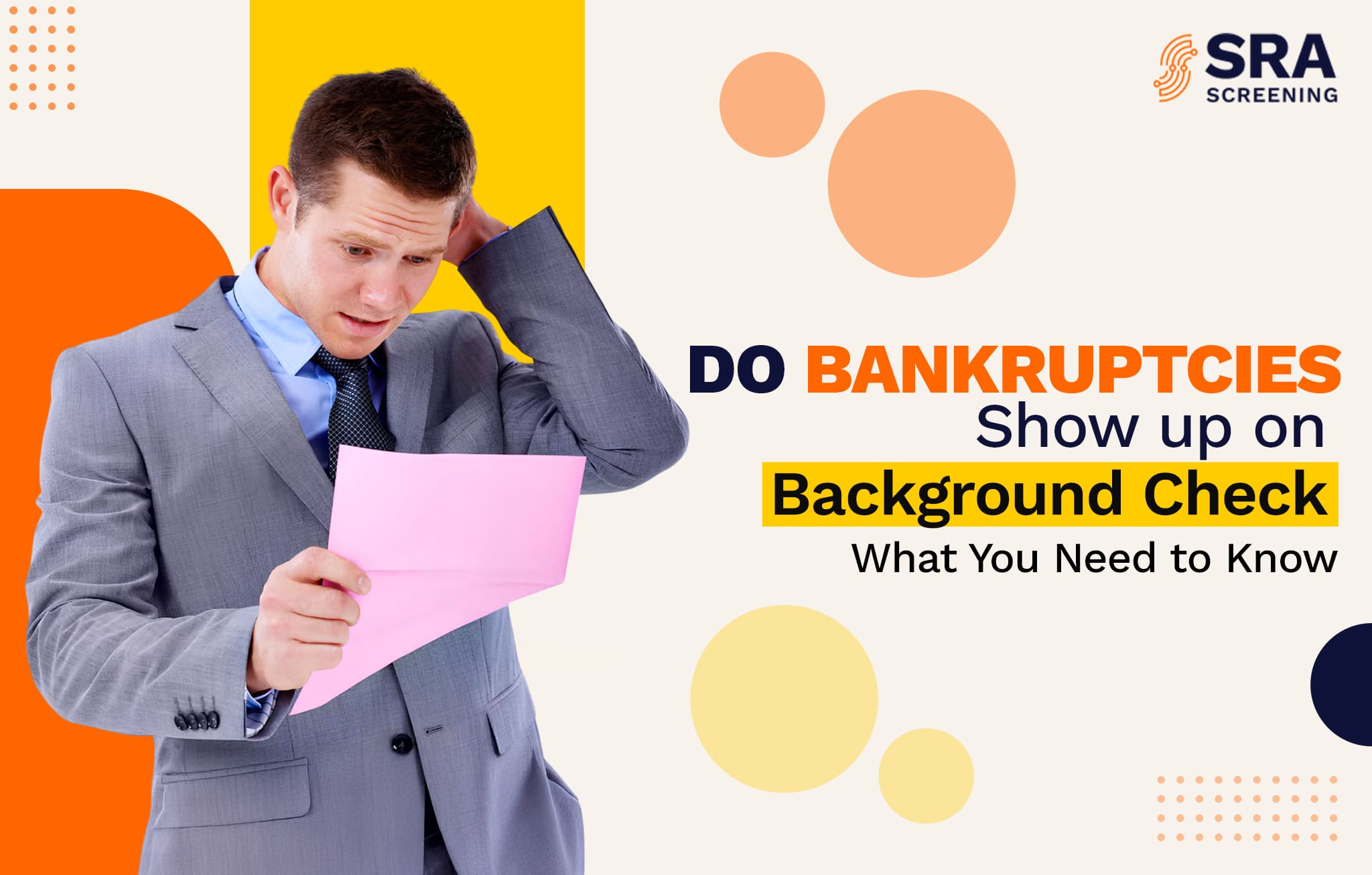
When you’re applying for a job, renting an apartment, or even seeking a promotion, the words “background check” can stir up anxiety — especially if you’ve filed for bankruptcy in the past. But how exactly do bankruptcies factor into background checks? Here’s everything you need to know.
Yes. Bankruptcy filings are legal proceedings and are part of public records. Are you thinking, will my employer know if I filed chapter 13? When someone files for bankruptcy — whether Chapter 11, Chapter 13, or another type — that filing is entered into the federal court system and can be accessed by various means.
The answer: It depends on the type of background check being conducted.
Credit background checks are the most likely to reveal a bankruptcy record, particularly when screening candidates for positions that involve financial responsibility, such as roles in accounting, finance, or government. Chapter 13 bankruptcies typically remain on a credit report for up to seven years and may be visible to employers who conduct these checks with the applicant’s consent.
It’s also important to note that the Fair Credit Reporting Act (FCRA) imposes strict guidelines on how bankruptcy and civil records may be reported in background checks. These regulations are designed to ensure that information is accurate, up-to-date, and used fairly, protecting individuals from misuse or discrimination.
Criminal background checks, on the other hand, will not show recorded bankruptcy filings. Bankruptcy is a civil matter, not a criminal offense, and therefore does not appear in criminal history searches.
Civil background checks may include bankruptcy information because bankruptcy filings are part of civil court records. Whether it appears depends on the depth and scope of the check being conducted.
Employment or tenant background checks vary depending on the nature of the check. A basic employment verification typically won’t include financial details. However, tenant screenings and employment background checks for high-level or financially sensitive roles often include a credit component, which may disclose any past bankruptcy filings.
Worried that your employer or landlord will find out if you’ve filed for bankruptcy?
Under the Bankruptcy Code (11 U.S.C. § 525), government employers are prohibited from denying employment solely based on a bankruptcy filing. However, private employers are permitted to consider an individual’s financial history when making hiring decisions, though some states have enacted laws that limit this practice.
Landlords and lenders also frequently consider bankruptcy filings when evaluating financial responsibility. While bankruptcy can influence the hiring decision, that decision is ultimately at the discretion of the hiring company.
Bankruptcy can have profound effects on both individuals and businesses. Understanding the primary causes of bankruptcy is important for identifying early warning signs and taking proactive steps to prevent financial losses.
The most common causes of bankruptcy include:
Many people lack a structured plan for managing their finances. Without tracking income, setting budgets, or planning for future expenses, it’s easy to lose control. Overspending, neglecting savings, and relying on credit cards to bridge monthly shortfalls are common patterns. When income is not aligned with expenses, it creates financial instability that can eventually lead to bankruptcy.
Taking on more debt than a business or individual can manage often leads to bankruptcy. If debt payments consume a large portion of monthly income, individuals can quickly find themselves in a cycle of borrowing.
Without a feasible repayment plan or a steady income, this often leads to default and, eventually, bankruptcy.
Unexpected major life events – such as medical emergencies or job loss – can cause significant financial disruption. Without emergency savings or adequate insurance coverage, these situations can quickly deplete finances. As expenses mount, individuals may struggle to keep up with their financial obligations, increasing the risk of default and possibly bankruptcy.
If you have a bankruptcy in your past, here are proactive steps you can take:
If you know it may appear, be upfront and explain the circumstances.
Can filing for bankruptcy affect your job?
Filing for bankruptcy generally does not impact your current employment. However, it may influence future job opportunities, particularly in industries or roles that require financial trustworthiness. To help mitigate potential concerns, it is important to demonstrate financial responsibility post-bankruptcy – such as maintaining low debt levels, making on-time payments, and responsibly managing new lines of credit.
Review it for accuracy and see what others might see.
The Fair Credit Reporting Act (FCRA) ensures that you must be notified if a credit report is used against you.
Although a bankruptcy record may appear on a background check—particularly one that includes credit information—it doesn’t have to define your future. Transparency, context, and a recovery record can go a long way in reassuring employers and landlords. Knowing what to expect—and being prepared—makes all the difference.
DISCLAIMER: This blog post is for informational purposes only and is not legal advice. Please consult a qualified professional before making any decisions.
The FCRA is enforced federally, but states may also implement it and have their consumer reporting laws. You may have additional rights under state law. Contact your state or local consumer protection agency or attorney general for more information.
When a workplace accident occurs, employers must quickly address a range of
When a workplace accident occurs, employers must quickly address a range of
Get updates, exclusive offers, and insights straight to your inbox.
Key Resource Hub
Your Questions Answered
Editorial team insights